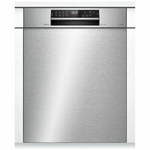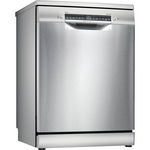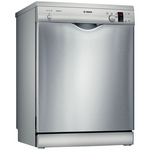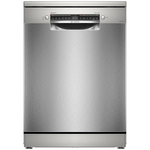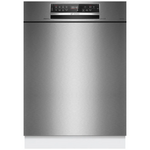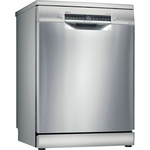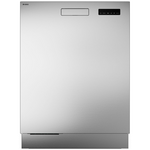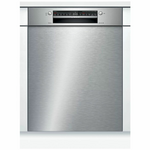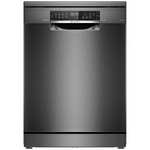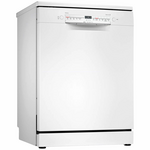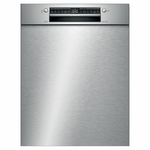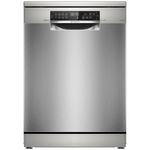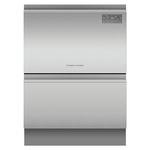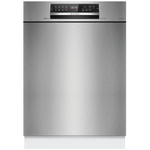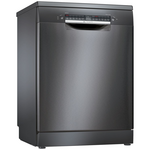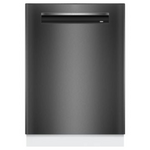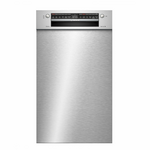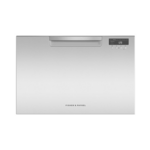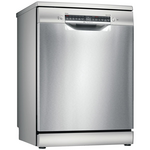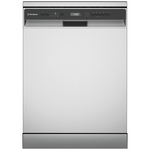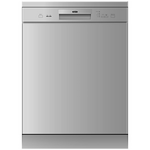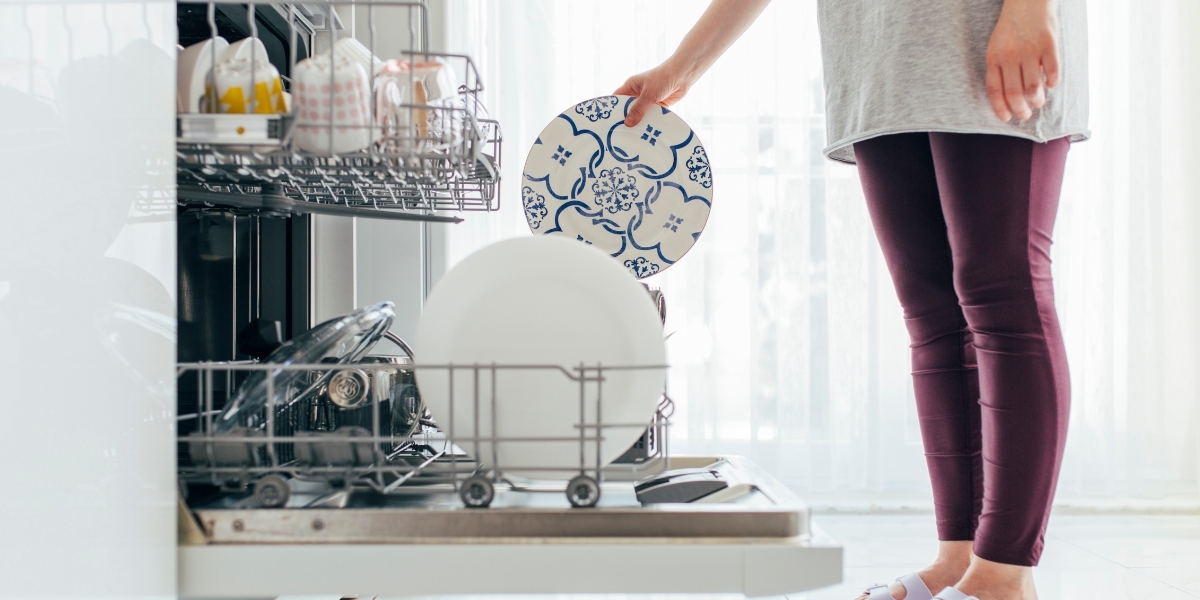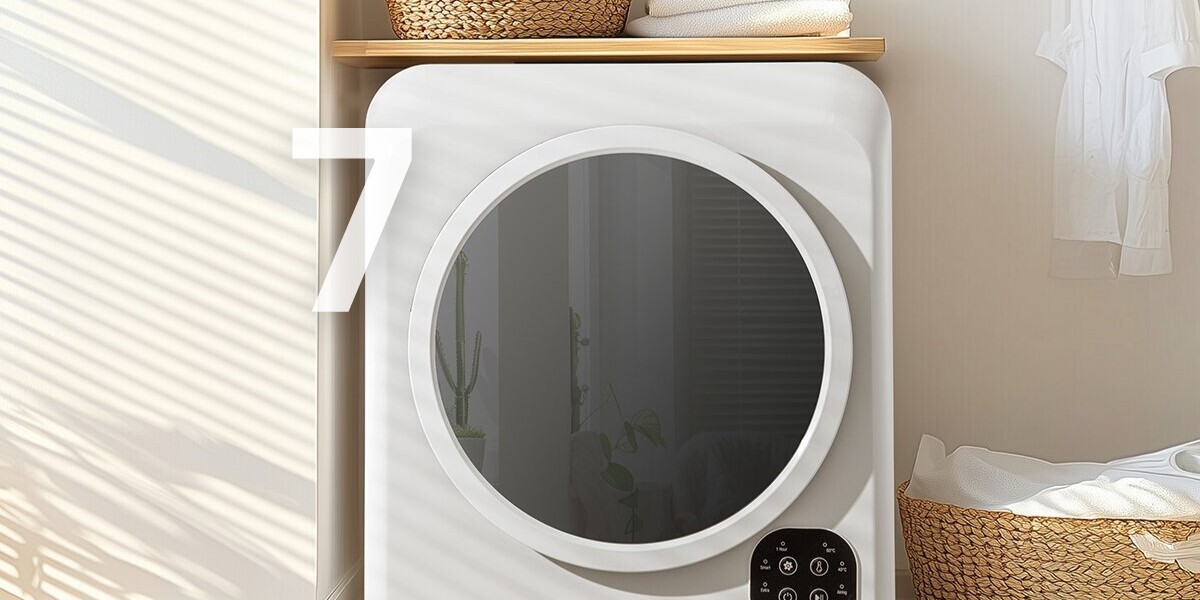
Your Cart
Your shopping cart is currently empty.
Kitchen
All things cooking, cleaning, chilling and more for the hard-working heart of your home.
KITCHEN | 7 JULY, 2025
6 MIN READ
How much does it cost to run your dishwasher?
Probably less than you think.
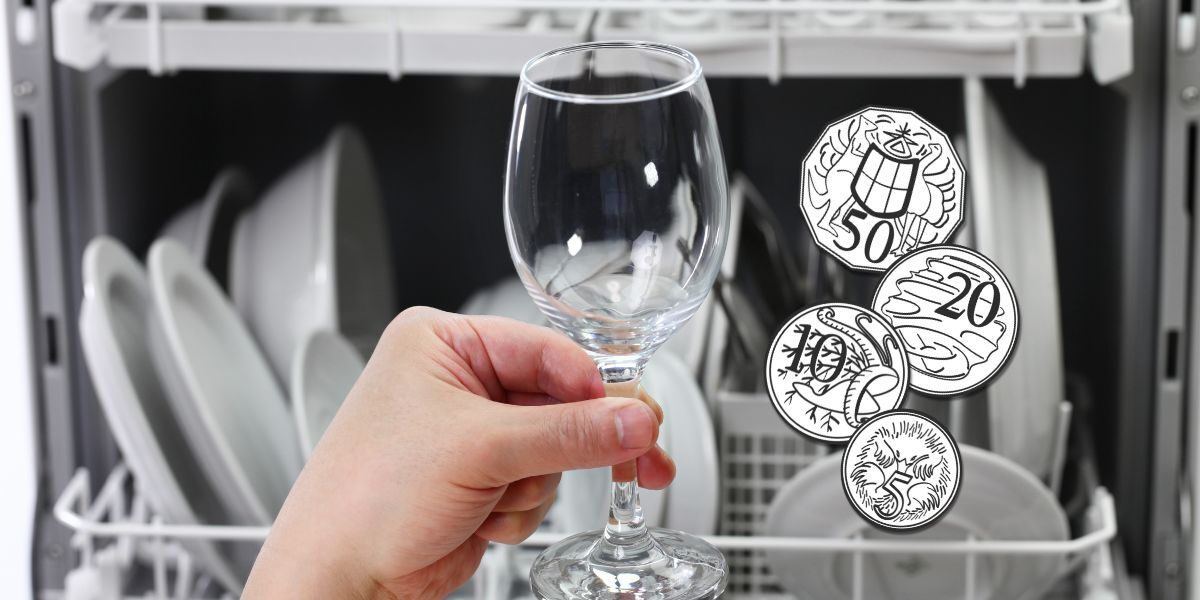
It may cost less than you realise to run your dishwasher
Dishwashers are practically a member of the family in most Australian homes, but they often aren’t used as effectively as they could be. If you put every load on the same quick wash cycle in an effort to use less energy and keep running costs low, you might find yourself rewashing half of the load and not really saving yourself money.
So how much does it actually cost to run a dishwasher? The exact answer depends on your energy plan, the wash cycle you use, how full the machine is, and the energy rating of your dishwasher, but we can still estimate average costs for standard-sized dishwashers.
What does it cost to run different dishwasher cycles?
The cost to run your dishwasher is mainly based on its energy use per cycle, measured in kilowatt-hours (kWh). The cost of electricity varies in Australia by State/Territory and energy provider, but if we use an average electricity rate of 30 cents per kWh, the cost per cycle ranges from around 20 cents for a quick or eco wash to around 55 cents for a heavy-duty cycle.
TABLE: Typical dishwasher cycle costs in Australia
Cycle Type | Temp (°C) | Energy use (kWh) | Water use (L) | Duration (min) | Cost estimate ($) |
Quick / Eco | 45-50 | 0.6-0.8 | 9-11 | 30-45 | $0.18-$0.24 |
Normal | 55-65 | 1.0-1.4 | 12-15 | 90-120 | $0.30-$0.42 |
Heavy / Pots | 65-70 | 1.5-1.8 | 14-18 | 120-180 | $0.45-$0.54 |
These figures are based on typical dishwasher usage patterns, assuming full loads in a standard dishwasher (not slimline or countertop). Eco cycles take longer than heavy-duty washes because they clean using less water and lower temperatures, relying on a longer spray time instead of heat to break down grime.
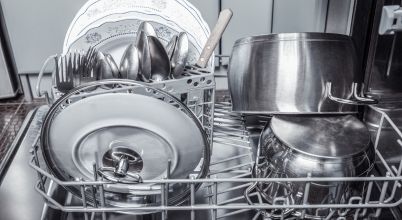
Heavy duty, higher temperature wash cycles can ensure dishes and pans don't need to be washed twice
Is it worth paying more for a heavier cycle?
A heavy cycle may only cost 20 to 30 cents more than an eco cycle, but can save you from rewashing dirty dishes. If you're regularly using a quick cycle and finding that items come out smeary and in need of a second wash, you’re wasting time, effort and energy. Running a higher temperature cycle once, instead of two lower-cost cycles, could be more cost-effective and less frustrating.
What else affects dishwasher running costs?
Several factors influence how much it costs to run your dishwasher:
Energy efficiency: Energy efficient dishwashers with higher energy star ratings of 4 or more use less electricity than lower-rated dishwashers of similar capacity, which can help keep energy bills in check. If your electricity plan has cheaper tariffs outside of peak hours, run your dishwasher during off-peak times.
Water usage: Some modern dishwashers use as little as 10 litres of water per cycle, which will generally cost less than 5 cents in Australia, so the water costs have far less impact than the machine’s electricity usage.
Full loads: A full load spreads the energy and water use across more dishes. Avoid running half-loads unless your dishwasher has a half-load function.
Air dry option: Turning off heat-drying and using an air dry setting (if available) reduces electricity use.
Pre-rinsing: Modern dishwashers are designed to handle food residue, so you can save on hot water and electricity by skipping the pre-rinse.

Staring at dirty dishes does little to make them clean
Is hand washing cheaper?
Not necessarily. While it might seem like using the sink would save money, the cost difference is often less than expected, depending on your hot water system.
A typical sink full of hot water may take 10-15 litres. Add to that the tendency for people to wash and rinse under a hot running tap, and you could easily use 25 litres or more to wash the equivalent of a dishwasher load.
Heating this water in an electric hot water system costs more than the water itself. At around 30c per kWh, heating 25 litres of water from 20°C to 50°C uses about 0.87 kWh, or around 26 cents.
If you use a natural gas hot water system, the cost is lower - heating the same amount of water could cost around 11 cents. Heat pump hot water systems, which are very energy-efficient, might bring that cost down to just 6-10 cents.
Meanwhile, a water-efficient dishwasher may use just 10-14 litres and spread the energy use more efficiently over the entire load. So unless you’re extremely frugal with your water and not using hot water at all, dishwashers can be as cheap - or cheaper - in terms of energy use, than hand washing.
One extra consideration that might make handwashing a little cheaper, however, is that dishwashing tablets or powder tend to cost more than regular hand dishwashing liquid. If you buy in bulk or on special though (there’s always some on half price), the cost difference might only be 20 cents or so. Of course, the few cents you save in money you’ll pay for in terms of time and effort rolling up your sleeves and scrubbing the dishes.
Thinking about a new dishwasher?
New dishwashers are typically far more energy-efficient than older ones. If your current model is more than 10 years old, upgrading to a newer energy-efficient model could reduce your dishwasher’s electricity usage significantly.
Check out 10 of our most popular dishwashers 2025
In short, running a dishwasher doesn’t cost as much as many people think. For less than a dollar per load - often closer to 30-40 cents - you can get sparkling clean dishes, save water and avoid the hassle of hand washing.
Time for a fresh dishwasher?
Get your new dishwasher sooner, with Free, Next Day Delivery*
We deliver to 95% of Australia's population with Appliances Online's legendary FREE delivery - and we can usually get your new dishwasher to you by the next day (Mon-Fri) as long as it's in stock. Plus, we offer paid Same Day Delivery in NSW, QLD, and VIC metro areas if you order before 12pm Mon-Fri.
We'll also take your old disconnected dishwasher away for recycling, for free, when we deliver your new one - which is something most retailers won’t offer you. For more tips on choosing the best dishwasher for you, read our Dishwasher Buying Guide and if you still have questions, call our friendly team 24/7 on 1300 000 500, or message us via the chat icon at the bottom of your screen.

Oli is Appliances Online's editor and blogger, with almost two decades of lifestyle-related writing and editing to his name. With a mission to help you buy better and live smarter, his brand loyalty will forever belong to the appliance manufacturer that develops a self-emptying dishwasher.
Latest Articles
KITCHEN
24 FEBRUARY 2026
10 of our top best selling rangehoods in Australia 2026
The key to clearer air and cleaner surfaces in your kitchen
LAUNDRY
17 FEBRUARY 2026
If you suffer from allergies, a clothes dryer could be a game-changer
How indoor drying helps manage itchy eyes and sneezing
KITCHEN
5 FEBRUARY 2026
What are dishwasher place settings?
Find the perfect dishwasher capacity for your household
LAUNDRY
3 FEBRUARY 2026
7 of our top best selling vented dryers in Australia 2025-26
Need a stackable or wall-mountable tumble dryer?
More Like This
KITCHEN
24 FEBRUARY 2026
10 of our top best selling rangehoods in Australia 2026
The key to clearer air and cleaner surfaces in your kitchen
LAUNDRY
17 FEBRUARY 2026
If you suffer from allergies, a clothes dryer could be a game-changer
How indoor drying helps manage itchy eyes and sneezing
KITCHEN
5 FEBRUARY 2026
What are dishwasher place settings?
Find the perfect dishwasher capacity for your household






